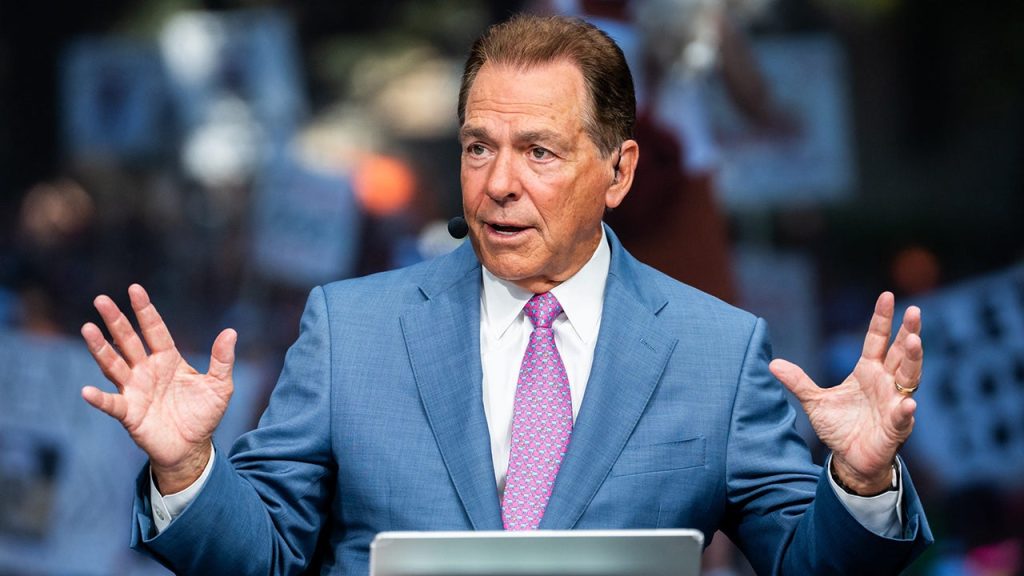Nick Saban’s transition from the sidelines of college football to the broadcast booth at ESPN marked a significant shift in the landscape of sports media. The legendary coach, known for his intense focus and unwavering commitment to the game, embarked on a new chapter as an analyst for “College GameDay,” ESPN’s flagship pregame show, contributing also to NFL Draft coverage and other network programs. This move brought Saban’s unparalleled football expertise and insights directly to viewers, offering a unique perspective on the sport he had dominated for so long. However, this new role also placed him in a different kind of spotlight, one where he would be engaging with personalities outside of the coaching world, sometimes with unpredictable results.
One such instance occurred during a “College GameDay” segment featuring comedian Shane Gillis as the guest picker. Gillis, known for his often-controversial humor, made a joke referencing the perceived parity in college football, suggesting that Saban or the Alabama football program had engaged in improper payments to players. While Gillis framed his comment as jest, the remark touched a nerve with Saban, who has always prided himself on running a program with integrity. This on-air exchange highlighted the potential for friction between Saban’s serious approach to the game and the more lighthearted, often irreverent nature of sports entertainment.
The interaction between Saban and Gillis underscored the complexities of NIL (Name, Image, and Likeness) deals in college sports. Gillis’s joke, while delivered in a comedic context, alluded to the ongoing debate surrounding player compensation and the potential for impropriety. His remark, “There’s a parity, now that everybody can pay their players,” reflects the widespread perception that the advent of NIL deals has leveled the playing field, allowing schools beyond the traditional powerhouses to attract top talent. This new landscape, while offering opportunities for student-athletes, also presents challenges in maintaining fair competition and upholding the principles of amateur athletics.
Saban’s response to Gillis’s jab, though delivered with a hint of irritation, served as a reaffirmation of his commitment to ethical coaching practices. He emphasized the importance of player development and the success of his former players in the NFL as evidence of his program’s integrity. He pointed to the number of Alabama alumni earning significant salaries in the professional league – 61 players – as a testament to their preparation and skill development, not as a result of illicit payments. This response highlighted Saban’s unwavering belief in building a program that prioritizes long-term player success over short-term gains.
The exchange between Saban and Gillis also brought to light the evolving dynamics of sports broadcasting. While “College GameDay” has always incorporated elements of entertainment alongside its analysis, the inclusion of comedians like Gillis adds another layer of unpredictability. The potential for humor to veer into sensitive territory, particularly when dealing with figures like Saban who have a reputation for seriousness, presents a delicate balancing act for producers. The incident demonstrated the challenges of navigating the sometimes-blurry line between lighthearted banter and potentially offensive remarks in a live television environment.
Furthermore, the episode underscored the changing landscape of college football itself. Gillis’s joke about parity reflects the perception that the traditional power structures are being challenged. The rise of NIL deals, combined with the increasing movement of players through the transfer portal, has created a more fluid and competitive environment. While Saban’s Alabama teams have historically dominated the sport, the emergence of new contenders suggests that maintaining that level of dominance may become increasingly difficult. Saban’s move to ESPN, therefore, coincides with a period of significant transformation in the college football world, a period in which the established order is being challenged and the future remains uncertain.

